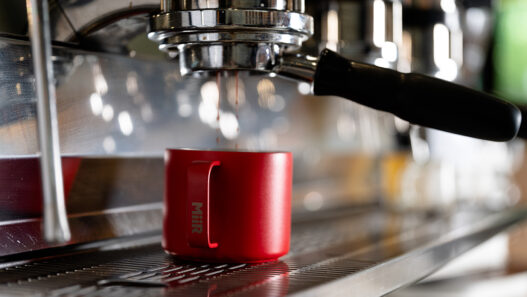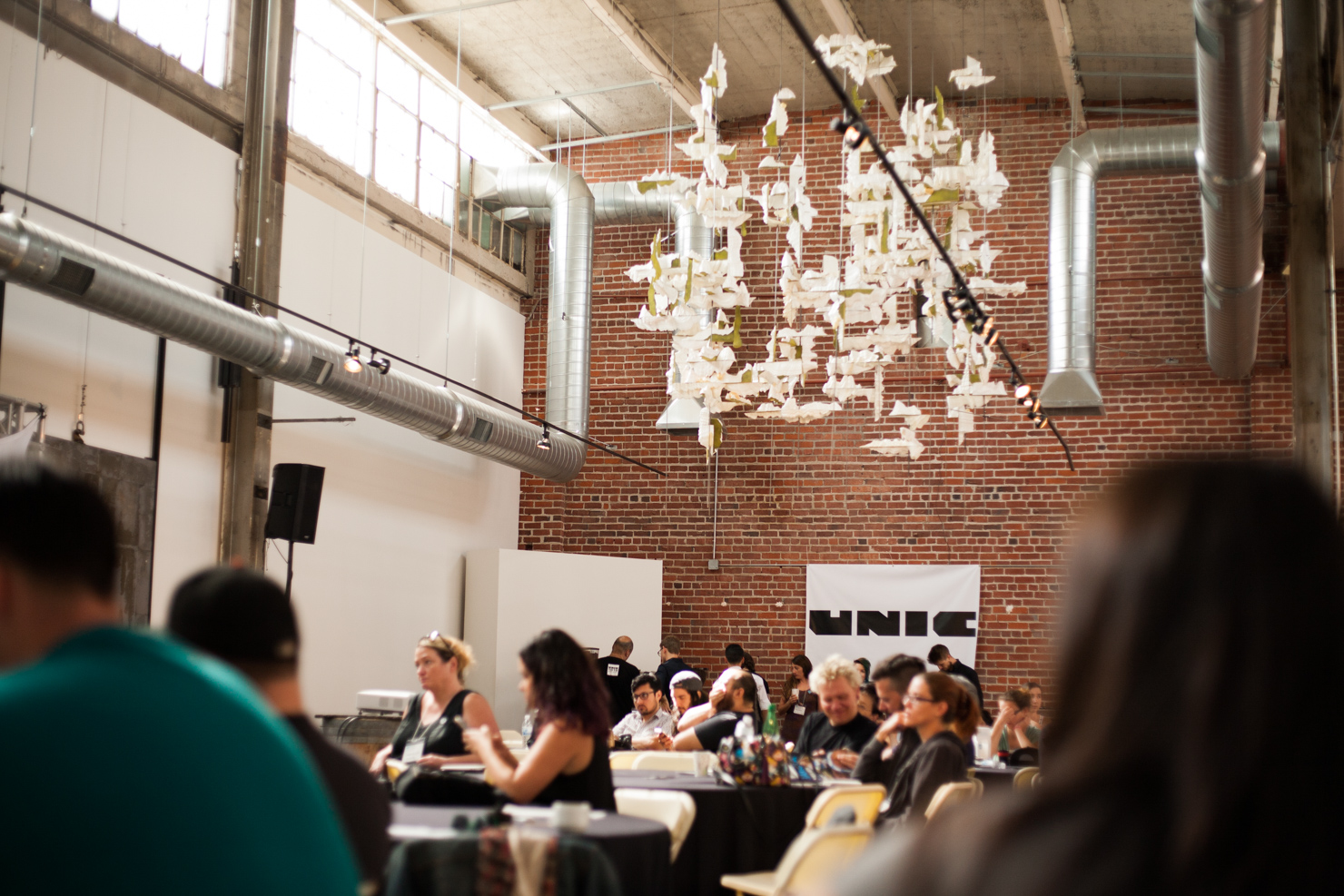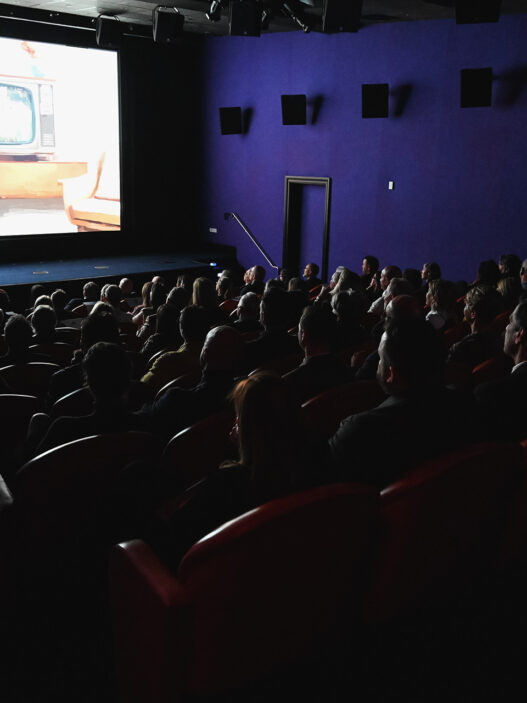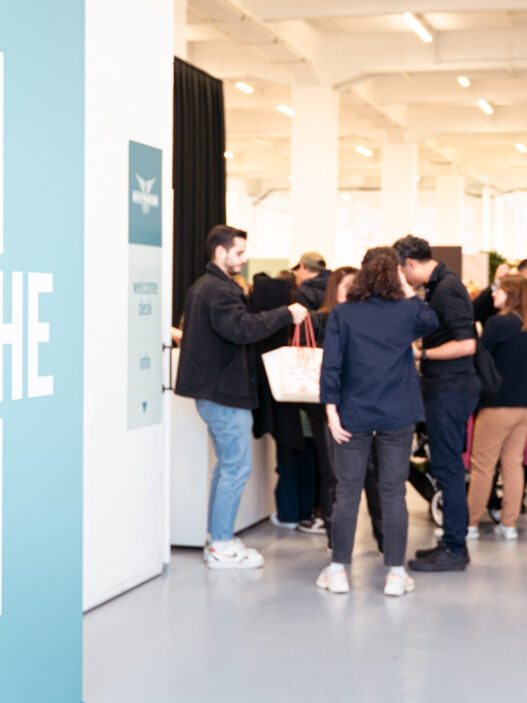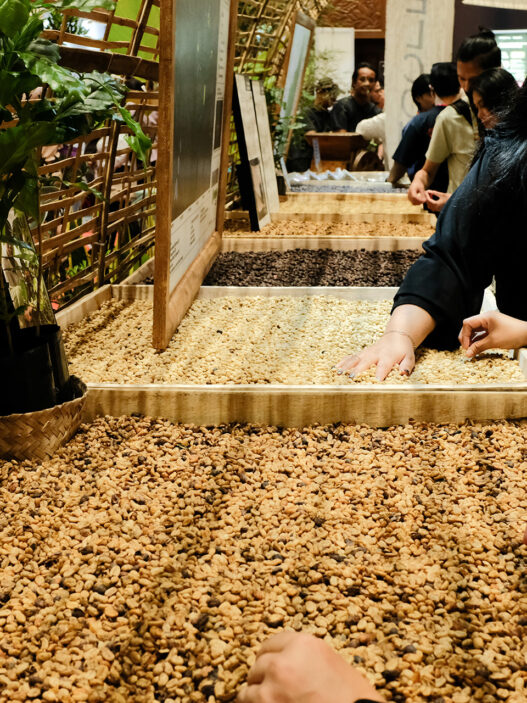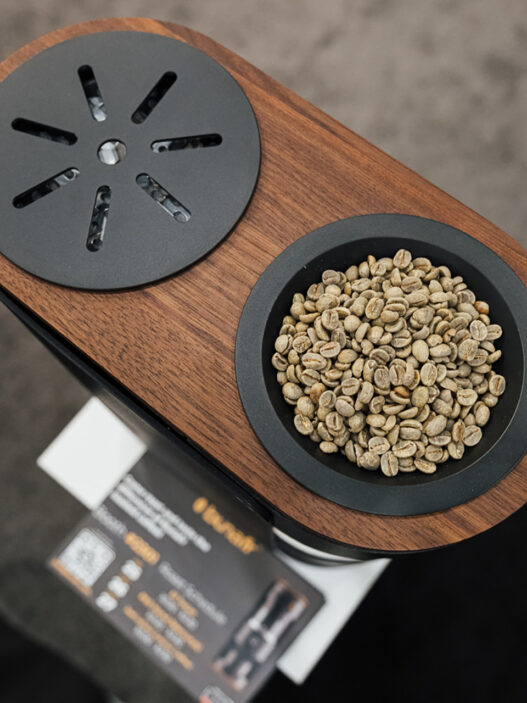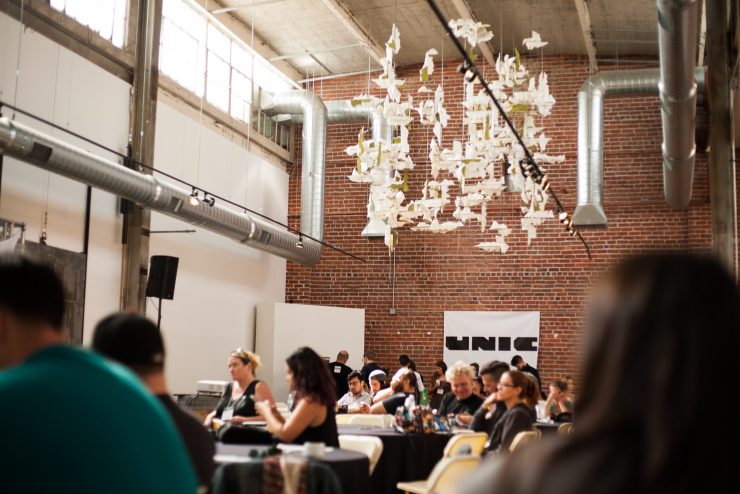
Barista Nation isn’t a complicated event. It’s a diverse semi-regular gathering of the coffee world—producers, baristas, sellers, general coffee people—held in different locations across the planet by our friends and partners at UNIC Espresso, an espresso machine manufacturing company based in Nice, France. The most recent BN event was held in Sacramento (a booming hub of specialty coffee) at the brick rectangle that is Beatnik Studio, ostensibly to bring together a bunch of people with a very specific and similar interest—coffee! Together we gathered to shoot the shit, talk about shared woes, and discuss the current, somewhat dire, state of coffee production. An uncomplicated event, yes, but the topics discussed are incredibly nuanced, both troubling and inspiring in equal measure.
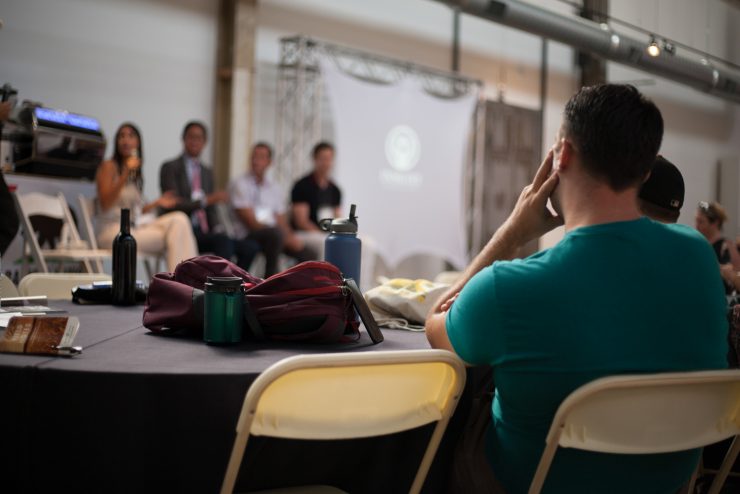
The setup is delightfully humble—a smattering of circular tables, a couple of espresso machines with rotating roasters crammed into the corners, a few sponsor’s tables clinging to the walls with a variety of samples and swag spread out across them. There’s a stage with another espresso machine (for the day’s closing event, the 1st Annual Barista Nation “‘Spro Down”) and a flag bearing the event’s logo—a coffee-themed take on California’s wide-eyed bear—where over the course of the day some of coffee’s most opinionated luminaries address the gathered crowd. And that’s about it: a group of coffee folks getting together to address the issues of specialty coffee, drink some fantastic coffee, and have a few laughs. It’s kind of a beautiful thing.
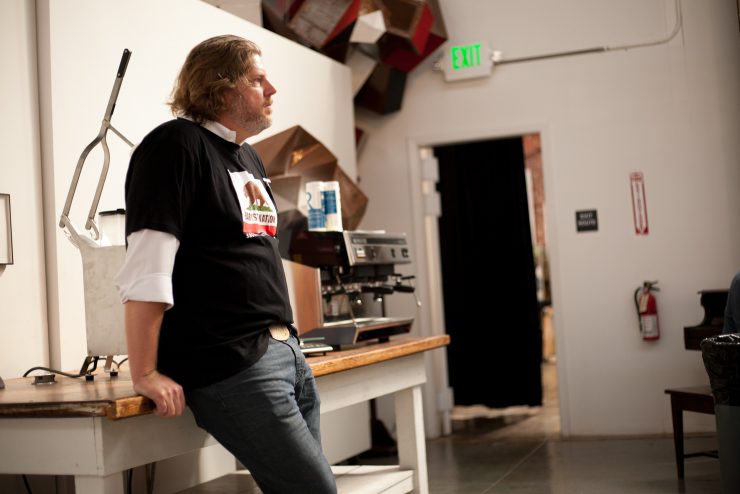
Here’s what you learn from a day spent listening to people talk about the state of coffee culture: the state of coffee culture, regardless of how much it’s grown, is still facing the same issues it has been for decades. The specialty coffee community is still very concerned about how to create non-exploitive, long-lasting relationships with the producers who provide them with the coffee beans that sit at the very center of the entire industry. These relationships need to be centered not only on financial connections (large-scale purchases opposed to nickle-and-diming microlots) but educational connections aimed at helping coffee producers the world over adjust, adapt, and learn the farming techniques that will enable them to sustain themselves.
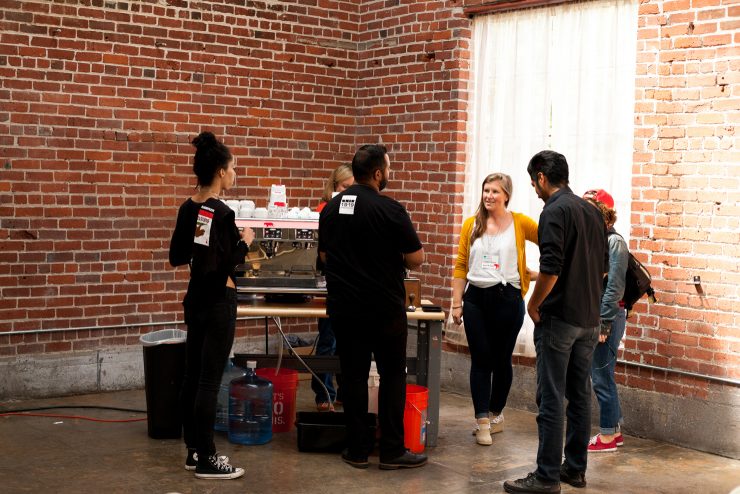
This concern for the producers winds its way from origin all the way up through the various channels of buyers and sellers to the retail market, where it lands on the backs of the baristas who sell coffee and the customers who buy it. Meaning, at the end of the day, a large portion of that weight falls on the individual barista’s ability to sell high-end coffee at the price it deserves to be sold at to a customer base that doesn’t always agree. And to do that baristas have to be not only knowledgeable but able to pass that knowledge along in a relatable, engaging way. Basically, baristas need to transcend their decade-old stereotype of being pretentious, sullen pricks, and figure out how to interact with their customers like normal human beings. In layman’s terms: coffee producers are still getting short-shifted because the industry hasn’t figured out a way to convince customers that the extra fifty cents they’re paying isn’t just because coffee roasters want to make an extra buck.
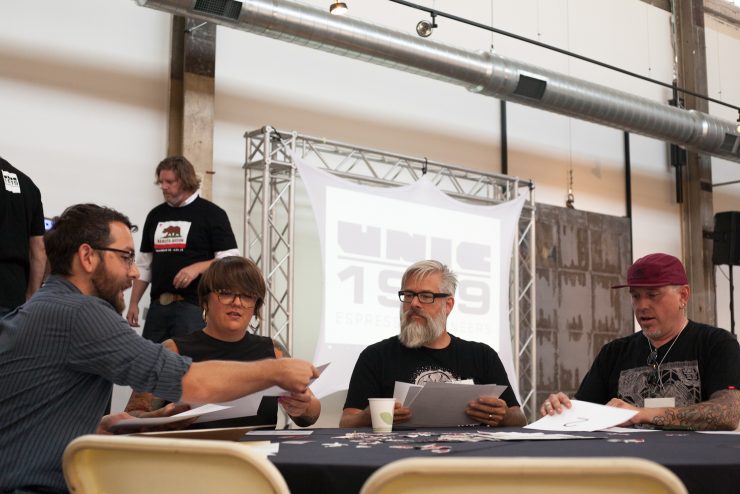
Andy Newbom of IP Coffee stood in front of the Barista Nation crowd, the moderator for a panel aptly named “The Coffee Supply Chain” and said, without a hint of humor, “Our obligation is to screw the customer.” And though this might seem like typical pretentious coffee seller chit-chat, what Newbom is pointing a finger at is the idea that the extra pocket change we might charge a customer for their beverage could make the difference between a Brazilian coffee farmer being able to eat during the off-season. The discrepancy between the amount of work—financial or otherwise—that goes into producing coffee and the paltry sum that specialty coffee retailers feel comfortable selling it at is vast, and the consequences, for the producers and the industry, are dire. As Newbom said, “Coffee doesn’t cost enough, no matter what you’re paying, coffee doesn’t cost enough.”
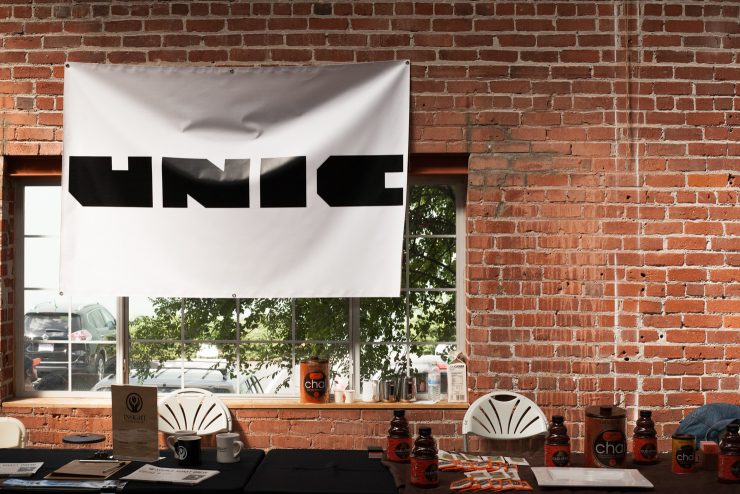
An ensuing Barista Nation panel—featuring Mark Inman of Olam, Eton Tsuno of Temple, Brazilian producer Nathalia Azzi, and Shawn Hamilton of Java City—echoed Newbom’s sentiments, going even further and placing a lion’s share of the responsibility on the individual barista to be skilled, and educated enough to tastefully “screw” their customers. As Inman said, “The barista is the one selling me on this coffee and I’m going out and mimicking what I’ve learned to other people. The barista is the crucial point for specialty coffee roasters.”
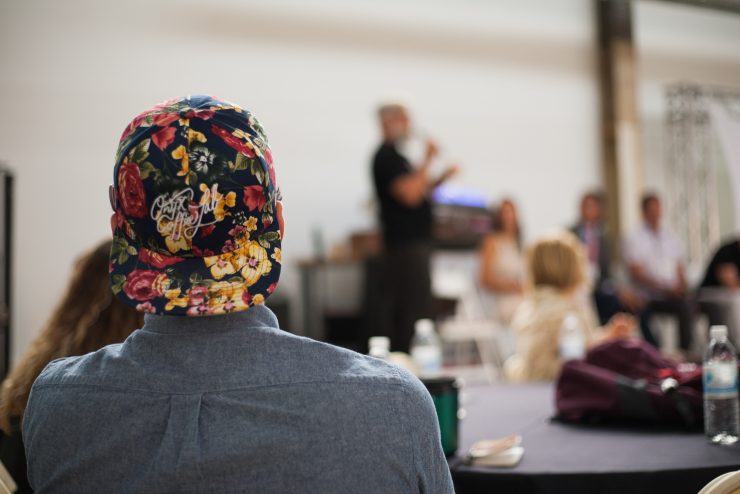
Which, in this writer’s opinion, seems to be pointing a finger at one of the age-old problems of specialty coffee—the norm for barista culture leans towards an acceptance, even an encouraging of bad, customer-last sort of attitudes. The world of specialty coffee has become complacent with the idea that knowledge isn’t to be shared, but to rather to be lorded over those just looking to pop in and grab a cup of joe. As Newbom addressed, baristas need not to be discussing cupping scores and esoteric details just because they have them, but instead need to be talking about things customers care about—the stories, people, and experiences that define not only the single cup of coffee sitting in front of them, but the whole of coffee production. Simply put, baristas need to knock the chip off their shoulder, and start, or keep, interacting with customers, well, like they’re customers.
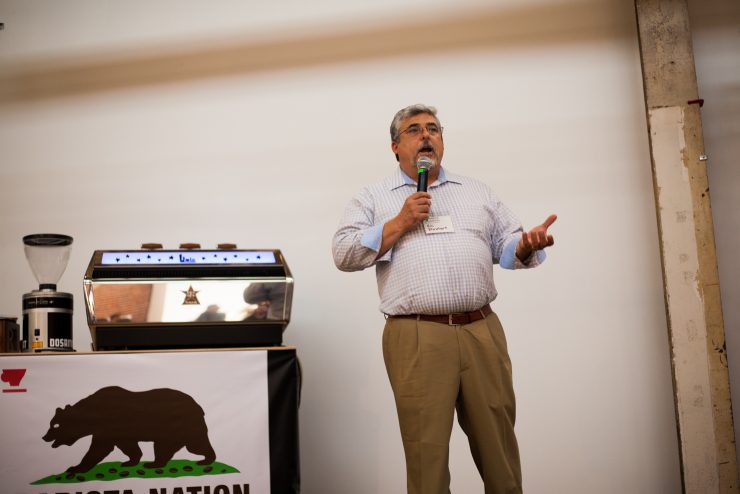
After lunch, Ric Rhinehart, the President of the SCAA and the day’s keynote speaker, gave what amounted to a State of the Coffee Union, a wide-reaching discussion of where specialty coffee is, somewhere at the lower end of “doing well” and what those in attendance could do to make it, well, better. If the education of baristas and their education of the customers was a major theme of the panel, Rhinehart’s focus seemed to be on a coffee world beset by climate change, disease, and too much demand with too little supply. His speech seemed to buoy the idea of education, but at a different level, that of the buyer to the producer. In a drastically changing world, the only way to ensure that specialty coffee continues to have a dynamic supply of their product is to create relationships with coffee producers based on more than just buying-and-selling, based instead on crafting sustainable connections focused on evolving education and consistent networks of financial support.
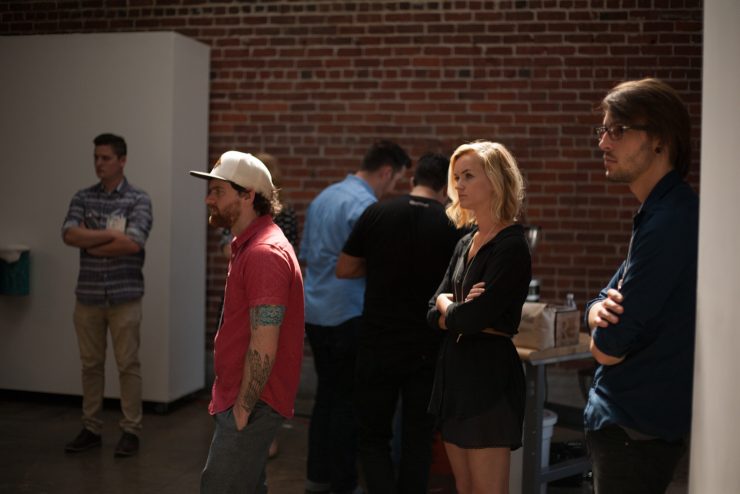
It is, on a base level, the reason everyone had gathered here at Barista Nation. Not just to discuss the newest and best grinder, but to use networking for its most benevolent role—to better our lines of communication, and in doing so, better the coffee drinking and producing world.
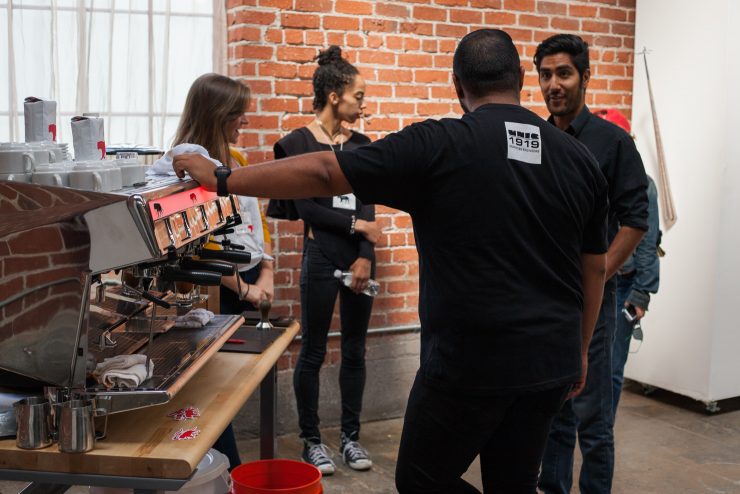
As frustrating, and depressing, as many of these realities seem, Barista Nation felt more uplifting than anything else. People were there to hang out, to show of their coffee, and grab a free t-shirt, but the event felt like more than that. This wasn’t your basic, pat-everyone-on-the-back-cause-we-rule coffee party, but rather a gathering of folks to candidly discuss the problems affecting everyone, and more so figure out how to work towards new solutions. It’s refreshing, innovative even, to see a multi-million dollar industry in today’s global economy steering the course of their conversation not towards how to keep the money flowing, but how to do so in a realistic manner so everyone—producers to customers, bean to cup—gets to benefit from the rising tide.
Noah Sanders (@sandersnoah) is a Sprudge.com staff writer based in San Francisco, and a contributor to SF Weekly, Side One Track One, and The Bold Italic. Read more Noah Sanders on Sprudge.




